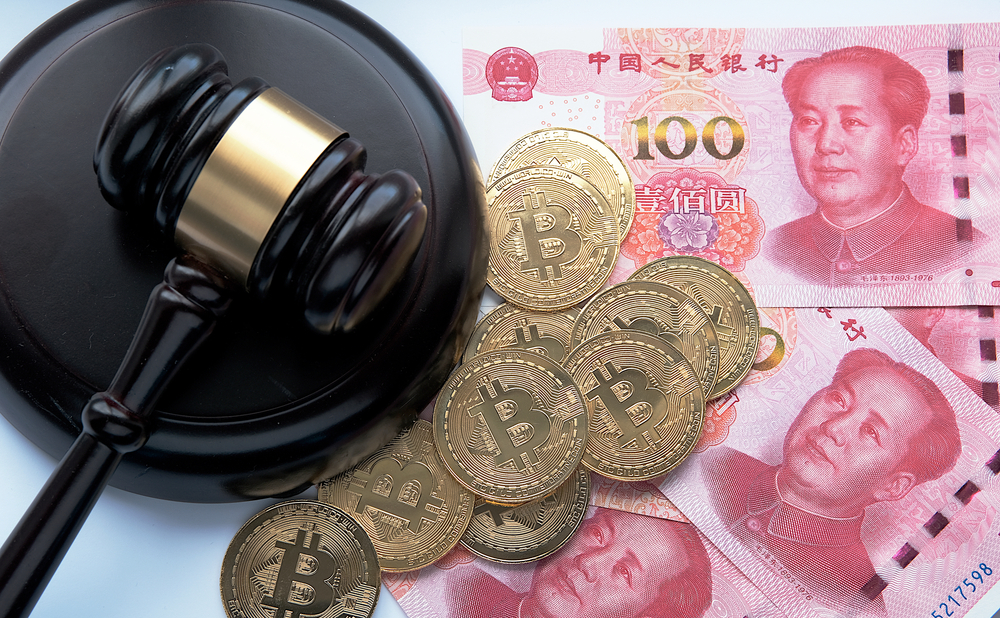Despite an official ban on crypto trading by the Chinese government, the crypto space in mainland China has been experiencing a flood of activity recently, with the country ranking 4th among nations with high crypto transactions.
The northern Chinese region of Inner Mongolia is in the spotlight following the arrest of 63 gang members who laundered 12 billion Yuan worth of crypto assets. Even with the central government placing a blanket ban on crypto trading, the country remains one of the busiest digital asset markets in the world.
According to the police report, the gangs gathered funds from illicit activities like gambling, fraud, and pyramid schemes in May 2021 and converted them into USDT, a stablecoin pegged to the USD.
Accordingly, the funds were then moved into several crypto wallets before finally being deposited into Renminbi, as revealed by the Public Security Bureau of Inner Mongolia’s Tongliao city,
Despite its prior status as one of the world’s largest crypto hubs, China still has a significant underground crypto ecosystem, with participants having no legal protection in case of fraud. Interestingly, the available record shows that 8% of customers in the collapsed FTX exchange were from mainland China.
In the case of the Mongolia incident, the law enforcement agency disclosed that the gang member used Telegram, although banned in China, to communicate and onboard new people into their fraudulent platform.
Each hired participant is entitled to a commission depending on the number of transactions they processed for the group. In addition, the police noted that it seized about 1.3 million Yuan from the proceeds of the illegal trade.
Tracking crypto transactions has always been challenging to crack, and the involvement of digital assets in laundering the proceeds of the fraud has been a challenge to the police.
Commenting on the incident, an anonymous officer in the Tongliao security agency said,
“The trading of crypto assets via unknown is similar to having a physical barrier to stop the tracking of cash flow and its recipients using the traditional cash tracking system.”
The latest case involved over 200 police officers collaborating with international crypto exchanges to examine every blockchain record. According to reports, two main suspects were traced to Bangkok before their subsequent extradition back to China.
Several Crypto-Related Crimes In Recent Months
According to a statement from the security bureau, the police were alerted to a possible fraud case after 10 million Yuan in cash was deposited in a local bank in July. The action prompted the police to investigate the suspected money laundering scheme.
China has witnessed several crypto-related crimes in recent months. In September, the police in Hunan Province arrested 93 people who orchestrated a similar money laundering scheme involving 40 billion Yuan.
Similarly, in March, the Shanghai police smashed a money laundering gang that carried out an online pyramid scheme involving crypto tokens worth over 10 million Yuan.
Even as Beijing’s hard stance against crypto is still in force, China has recorded over $220 billion worth of trading in digital assets between June last year and July 2022. This placed China as the leading country in East Asia and the fourth-largest crypto trading destination in the world, per Chainalysis on-chain data.
However, crypto trading in China is only possible with the use of personal tools by Chinese residents. Thus, there is a huge increase in the use of VPNs by residents to hide their identities and connect to foreign crypto exchanges.
Governments worldwide have upped their regulation of the crypto ecosystem to checkmate the spate of illegal trade involving digital assets. Hence, the use of virtual tokens to commit illicit transactions has dropped significantly in recent months.
According to Chainalysis, global crypto-related scams declined by 65% in the first seven months of 2022.
